I have not actually forgotten that the rest of the world exists. As usual, this is everything that wasn’t worth an entire post and is not being saved for any of the roundup post categories.
(Roundup post categories are currently AI, Medical and Health, Housing and Traffic, Dating, Childhood and Education, Fertility, Startups, and potentially NEPA and Clean Energy.)
Bad News
Rebels from Yemen were firing on ships in the Red Sea, a problem dating back thousands of years. Here’s where we were on December 17, with the US government finally dropping the hammer.
Hidden fees exist, even when everyone knows they’re there, because they work. StubHub experimented, the hiding meant people spent 21% more money. Companies simply can’t pass that up. Government intervention could be justified. However, I also notice that Ticketmaster is now using ‘all-in’ pricing for many shows with zero hidden fees, despite this problem.
Pollution is a huge deal (paper, video from MRU).
Alec Stapp: Cars spew pollution while waiting at toll booths. Paper uses E-ZPass replacement of toll booths to identify impact of vehicle emissions on public health. Key result: E-ZPass reduced prematurity and low birth weight among mothers within 2km of a toll plaza by 10.8% and 11.8%.
GPT-4 estimated this could have cut vehicle emissions by 10%-30%, so the implied relationship is ludicrously large, even though my quick investigation into the paper said that the estimates above are somewhat overstated.
Emmett Shear: The group chat with 100 incredibly impressive and interesting members is far less valuable than the one with 10.
Ideal in-person chat sizes are more like 2 to at most 5.
The good news in both cases is that if you only lurk, in many ways you do not count.
Simple language is indeed better.
Samo Burja: I've come to appreciate simple language more and more. Careful and consistent use of common words and simple sentences can be just as technically precise.
Ben Landau-Taylor: I'm reading two papers by the same author, one at the start of his career and one after he'd been in the field for two decades. It's remarkable how academic experience makes his prose *worse*. At first his language is clear and straightforward, later it's needlessly complex.
Government Working
IRS changed Section 174, under the ‘Tax Cuts and Jobs Act,’ such that R&D expenses can only be expensed over 5 years, or overseas over 15 years. All software development counts as R&D for this. If you are big and profitable, you do less R&D but you survive. If you are VC-backed and losing tons of money, you don’t owe anything anyway and do not care. If you are a bootstrapping tech company, or otherwise trying to get by, this is death, at a minimum you have to lay off a bunch of staff whose cost you can no longer meaningfully expense.
This is complete insanity. It is obviously bad policy to discourage R&D in this way but I did not fully realize the magnitude of the error. If we do not fix it quickly, it will do massive damage. I don’t care whether it makes sense in theory in terms of value, in practice companies are getting tax bills exceeding 100% of their income.
IRS did also notch a recent win. They’re cutting college aid application process from over 100 questions down to 18 with auto populated IRS information.
Ashley Schapitl: Thank the IRS for the new 10-minute college aid application process! “The new FAFSA pulls from information the government already has through the IRS to automatically input family income details.”
Yes, Matt Bruenig is coming out in favor of all paychecks going directly to the government, which then gives you your cut after. Just think of the efficiency gains. This does not seem like a good idea to me.
Department of amazing news but you’re only telling me this now?
Alec Stapp: Good news of the day: DOE is proposing a new rule to give solar, energy storage, and transmission line upgrades a categorical exclusion from environmental review. Simple administrative fix that will speed up permitting for clean energy.
This is only a proposed rule. There is still time for us to continue not building anything and boiling the planet. But yes. It turns out we had the ability to do this the entire time. This will, if implemented, dramatically advance our ability to do such projects.
The weirdest part is this is still only partial. It does not include non-battery energy storage, carbon capture, direct air capture, wind, geothermal or hydrogen. Once you realize you can do this, why stop at solar, transmission and batteries?
If we can give all clean energy projects this massive advantage, then we have a real shot at getting the grid off fossil fuels.
Did you know that if you are doing work for the federal government, you are expressly forbidden from doing user research unless you go through a 6 month approval process first? This is of course exactly the opposite of how anyone capable of building anything ever builds anything. Everything government does ends up like this. Massive disruption and let-people-do-things energy is needed, instead everyone is mostly forced to focus on meeting a long list of technical requirements.
We should continuously be thankful that Americans enjoy basic rights like ‘freedom of speech’ and ‘if the courts say something is illegal the government has to stop doing it.’ Because places like the UK do not grant their citizens such rights. Prim Minister Sunak is trying to deport anyone who arrives illegally on a boat and leave them in Rwanda. The courts have said this is illegal, you have to put them somewhere they are safe, and his response is:
UK Prime Minister: We are a reasonable country, but our patience has now run out. Our Parliament is sovereign, and it should be able to make decisions that cannot be undone in our courts.
This is both a cautionary tale, in that it is rare and precious that we enjoy such protections, and also a non-cautionary tale, in that the UK would still be a fine place to live, at least if they built houses in which one could live there.
Work From Home
Matt Yglesias theorizes that work from home is a dysfunctional equilibrium that makes people miserable, but an empty office is worse so you can get stuck. There will be cases where this is true, but also ‘you need to be in the office for signaling and office politics’ or flat out ‘they wouldn’t let you work from home’ meant a lot of people were miserable the other way.
He illustrates one way that Choices are Bad:
Matthew Yglesias: When I was in college, for one class we were assigned a case study of a company that shifted to a flexible work schedule that gave everyone way more opportunity to take time off when needed to participate in kids' events, family responsibilities, etc.
Everybody hated it because the flexibility meant in practice that a huge share of your non-work time was taken up by family responsibilities.
They'd lose the freedom of there just randomly sometimes being neither work nor any family shit and you could just do whatever.
But they were stuck in a virtue signaling trap. Nobody could actually *say* that they preferred going back to a more rigid schedule that forced them to miss some school plays and kid softball games and family dinners.
That seems like a different situation. Also I don’t really buy it? I can see the problem but seems so hard for that to dominate.
Antisocial Media
Study finds most college students would actively prefer a world without Instagram and TikTok, but don’t feel they can stay away if everyone else is using them.
Jonathan Haidt: New study shows that TikTok and Insta trap young people, who feel they MUST use the platforms because… everyone else does. But if offered the chance to PAY to have everyone in their college delete the apps, most on TikTok, and half on Insta, would pay.
Also: most students say they’d PREFER to live in a world with no TikTok or Insta. Even most active users of Insta say that. Social media is not a normal consumer product. The negative spillover effects are enormous, not just on non-users, but on active users as well, the authors conclude. The business models of Meta and TikTok require trapping young users in this way. The presence of major external costs imposed on others--especially children--is the textbook example of why societies impose regulations, and why class action lawsuits exist.
See the summary, and the full working paper, here.
Andrew Critch: This survey shows how platforms are like arms dealers: turning us against each other and selling us weapons to attack each other in self-defense. They literally manufacture a Prisoner's Dilemma. Now imagine all the ways superintelligent AI could turn us against each other.
From paper:
Users would need to be paid $59 to deactivate TikTok and $47 to deactivate Instagram if others in their network were to continue using their accounts.
Users would be willing to pay $28 and $10 to have others, including themselves, deactivate TikTok and Instagram, respectively. Accounting for consumption spillovers to non-users reveals that 64% of active TikTok users and 48% of active Instagram users experience negative welfare from the products’ existence. Participants who do not have accounts would be willing to pay $67 and $39 to have others deactivate their TikTok and Instagram accounts, respectively.
Taken together, these results imply the existence of a “social media trap” for a large share of consumers, whose utility from the platforms is negative but would have been even more negative if they didn’t use social media.
Our price cheap. New cause area. Only $106 per college student to get them all off of TikTok and Instagram at the margin, flipping to a negative amount if enough others took the bribe? The average college student pays $104,108 over four years to attend college. I’d much rather charge them an even $104k and have them agree not to use TikTok and Instagram. Everybody wins.
Nikki Haley called for mandatory identify verification on social media, saying the alterative is a ‘national security threat.’ She was rightfully roasted for this and was forced to walk it back. I will note that I was never especially worried she would be able to implement this, even if there was a legal way to do it. We have not even been able to ban TikTok, and oh boy is TikTok doing its best to explain why we need to ban it.
Also note that the bottom graphic says she first discussed this during a segment on antisemitism. If you think that either forcing people to identify themselves to talk, or otherwise censoring ideas, is a good way to fight antisemitism, you do not understand how any of this works, least of all antisemitism.
Claim that X Premium+ gives a rather large boost to Twitter engagement. I have not noticed an obvious difference between Premium+ and regular Premium, other than access to Grok.
Fraud Is a Rather Big Deal
It is highly understandable, given how unreasonable many attacks upon EA have recently been, for its advocates to get a little carried away in its defense. It is vital to not do that, and instead use this opportunity to get the house in order. This includes things like better respect for stakeholders and norms, it means not using supposed fungibility of lives and money to justify almost anything. And it especially means proper condemnation of lying and fraud.
Either lives and money are centrally fungible or they are not. Either you are on board with not committing fraud no matter what on a pretty basic level, or you’re doing math. Consider this from Scott Alexander, the necessity and precision of which boggles in various ways:
Scott Alexander: In my defense of EA, I said of its failures (primarily SBF) that “I’m not sure they cancel out the effect of saving one life, let alone 200,000.” A friend convinced me that this was an unfair exaggeration. There are purported exchange rates between money and lives, destroying billions in value is pretty bad by all of them, and there are knock-on effects on social trust from fraud that suggest its negative effects should be valued even higher. I regret this sentence, no longer stand by it, and have added it to my Mistakes page.
I feel like the important mistake here has not been properly recognized yet?
The link goes to the EPA statistics on mortality, where a life is valued at $10 million. Meanwhile, Scott Alexander is using estimates of EA lives saved based on dollars spent on interventions times EA’s own estimated cost per life saved for the intervention. Which is, to say the least, quite a lot lower.
Effectiveness for me but not for thee. You almost need to justify why you wouldn’t commit fraud, here using secondary knock-on effects but they are unquantified and thus easy to largely disregard if you follow such a philosophy too closely.
This is then combined with an implied denial of action-inaction distinction. Which is good utilitarian logic and we very much go overboard the other way as a civilization, but this type of scenario is exactly why that distinction is often necessary in practice rather than confused or stupid.
More to the point, you can’t both make the case that everyone agrees you definitely shouldn’t ever commit fraud, and also make arguments like this that the fraud basically wasn’t inherently that big a deal. It was a big deal.
Even if and while you are determined to only look at specific quantifiable knock-on effects, advocates of EA must appreciate how stupendously bad SBF was for exactly what they most care about. The whole OpenAI incident had many causes, but an important one was a desire by Altman and others in management to distance from EA, caused largely by the direct aftermath of SBF and FTX. They are far from the only ones looking to create such distance.
In other EA criticism: Long thread from Eli Tyre critiquing EA as too focused on quantifying first order effects, in a way that works on the margin but does not scale. Can you improve the world a lot without deeply understanding it? On the margin, yes, relative to your efforts, there are various tricks to free ride on the information of others. Or you can deeply understand the local situation, and help locally. Or find unique opportunities that are overdetermined, where you don’t need deep understanding to know the right play. Helping at scale without deeply understanding what you are doing? No. Won’t work.
Giving Away $2.1 Billion Also a Big Deal
McKenzie Scott gives away $2.1 billion to 360 different charities. Focus is clearly to help Americans with things like health, poverty, hunger, community centers, child aid, legal aid and so on. Very conventional portfolio ‘this is a charity that helps the less fortunate by providing stuff,’ with broad diversification.
I love that she is so low key about all this, not making it all about her. Mad respect.
Matthew Yglesias: If you tell people you are trying to do the most good, inevitably people will end up disagreeing with some of your choices and getting mad.
If you do what Scott does and just throw money around semi-randomly with no particular reason given then people love it.
This is a ubiquitous issue. Taking default actions and avoiding agency and meaningful decisions means you are not blamed for things, rather than getting you blamed for not even trying to maximize. Trying to maximize gets you the opposite. This is a problem.
I am sad that she is missing the opportunity to do better. But that is supererogatory. What she is doing is still great. The origin of the mistake is, in large part, where people are mad at and blaming people for attempted maximization. And also where others are not laying the necessary groundwork for efficient passive investment.
In a world in which other people were doing the work of finding good charities and donating primarily to them, and responded to her actions by stepping up their work on that, Scott’s behavior as essentially a passive investor would work out well. Not everyone needs to be on the research team. Not everyone needs to be an active investor for market prices to work out.
The problem is that if the dumb money is outvoting the smart money in the nonprofit sector. If the grifters and emotional manipulators and storytellers and those with prestige and connections and reputations end up with the money. If the market is fundamentally failing, then putting in more passive money is going to encourage further bad behaviors and distortions. And that is indeed my model.
This compounds over time, if Scott’s decisions predictably reward funds raised. That will amplifies returns to raising funds. Doing this kind of passive investment once and only once is basically fine even in a pretty bad situation. Do it every year at this size, where people can plan for it, could become a real problem.
Hit Vote With Rock
I love how it has proven essentially impossible to, even with essentially unlimited power, rig a vote in a non-obvious way. I am not saying it never happens deniably, and you may not like it, but this is what peaked rigged election somehow always seems to actually look like.
Kenny: This is the funniest way to start a war. Have a “should we invade?” Referendum and then rig the vote for yes. 10/10 no notes
That’s right. Exactly 95/5, exactly 10.5 million yes votes, exactly the same vote totals on both questions. It is a power move, rather than laziness or a mistake, making it clear to everyone what you did rather than having people ‘accuse you’ of anything. Which makes sense.
San Francisco’s Finest Compensation Packages
Police in San Francisco can get paid over $400k total compensation via overtime.
I have no problem with paying the market clearing price for talent. San Francisco’s tech community certainly understands this lesson. If no one wants to be a police officer, especially one who works lots of overtime, then the price should be high. Very few of you would take the job even at $500k. I certainly wouldn’t.
What we actually have here is different. We have a failure of marketing.
If you are going to pay this much, that’s fine, do what you have to do, but then structure it to induce supply and then you shout it from the rooftops.
Instead we get:
Give me one minute television adds during 49ers games that explain the full compensation package. You’ll get your new recruits.
Even better, structure it so base is stronger but system is harder to game and overtime pays less, I am confident there is a way to make everyone but a few extreme examples better off.
Crime and Punishment in San Francisco
Police in San Francisco seem increasingly to have zero ability to enforce the law. This could have something to do with their recruiting problems.
Garry Tan (CEO Y-Combinator): I just got forwarded the craziest email from SF Parking Enforcement
A vehicle used in narcotics trafficking with over $2600 worth of tickets has been parked for weeks across from the Marina Safeway.
A citizen asked to get it removed and this was the response. 🤯
Parking tickets are more of a suggestion, then. As are the laws against narcotics trafficking. I continue to be impressed at how slowly things are escalating.
Then again, they might reasonably wonder why they would bother.
Kane: Judges released ~90% [284 of 316] of the most egregious suspects in San Francisco, and basically none of them re-appeared for their court date. Incredible.
Kron 4 News: There are 535 suspected San Francisco drug dealers with open bench warrants who failed to show up in court to face narcotics sales charges, the DA's Office said. Judges had granted their freedom from custody pending trial.
And then there’s this. Quite the headline from the San Francisco Standard.
San Francisco Homeless Man Camped Outside a School With ‘Free Fentanyl’ Sign Is Convicted Pedophile
The story backs this up, hard.
Joseph Adam Moore, 46, is camped opposite the Stella Maris Academy K-8 Catholic school on Geary Boulevard at Ninth Avenue. Convictions in Santa Cruz in the mid-'90s that are listed on the state’s registry of sex offenders say he was found guilty of forcible unlawful sex in 1997 and committed lewd acts with a child under 14 in 1996.
“We don’t want anything of that nature anywhere near our schools, but we want to be able to work with law enforcement to establish the guidelines,” he said. “The school works with law enforcement and city officials to manage unhoused individuals who are perhaps too close to the students. It’s a frequent thing.”
Marlow said the school would be looking into Moore’s claims that he is selling drugs near the school. He said that police had come to the location multiple times.
…
San Francisco Superior Court documents show Moore has been arrested five times in the city since 2007 for allegedly failing to re-register his address as a sex offender every 30 days.
I would think that picture would be sufficient to have the police deal with the situation, even if this wasn’t across from the school, a convicted sex offender and recurring over months. I would however be wrong about that, at least in San Francisco.
We need bold new ideas. Instead, we are told to beware the hot dogs, or anyone that might dare try and do business?
London Breed (Mayor of San Francisco): We want food vendors to be permitted so we can ensure the food being sold on our streets is safe and healthy. @SF_DPH will continue to enforce our food safety laws. They’ll also continue educating unpermitted vendors on how to get into compliance with the support from the City.
Paul Graham: Could you maybe start classing fentanyl as food, so that you'll also be able to crack down on unlicensed street vendors of that?
near: cant believe this website is only $8.
Whatever it takes.
Other drugs sold in San Francisco (and presumably many other places) are increasingly laced with Fentanyl. As Garry Tan point out, this is very much on purpose, and officials are complacent. What to do about it? On a practical level, it is worth paying a premium to carefully source your recreational drugs, and get them from sources that are reliable and have no incentive to contaminate. I’m mostly in the ‘drugs (and alcohol) are bad’ camp even without this concern, but if you go a different way definitely get the good stuff.
Or are they finally turning the corner, completely unrelated to Xi’s visit?
Brooke Jenkins (District Attorney of San Francisco): We have now turned the corner on the culture in San Francisco with respect to retail theft. I have made it clear that we will prosecute those who commit theft in our City. No longer can we view retail theft as a low level crime. No longer can we view it as less serious.
She talks tough, even brags about getting a guilty verdict in a theft case. Let us see if she can keep it up.
Meanwhile, the whole city cleaned up its act just in time for Xi’s arrival, As is suggested in the video, how about we do it this way all year round?
Newsome shows refreshing honesty and says yes, we are only cleaning up the city because the fancy leaders are coming into town (0:17 video).
Or perhaps it is all very Potemkin village, and they are only cleaning up their act in exactly the ways and places that impact the summit?
Misha Guervich: People keep saying this but it's just not even close to true that they "managed to clean up the city" Just walk around downtown and you'll see at best a tiny fraction is kind of cleaned up.
Crime and Punishment Everywhere
It seems like the courts can tell prisons how they have to treat prisoners, the prisoner can literally bring a copy of the court’s decision with him, and then the prison workers can choose to ignore that and then are immune to being sued ? Which means, effectively, you have no rights, and courts have no power over prisons.
Raffi Melkonian: A devoted Rastafarian wanted to keep his locks while imprisoned, and TOOK a copy of the Fifth Circuit's opinion saying he could with him to intake. The guards threw it away and forcibly shaved him. However, he loses his case for damages under circuit precedent.
Here is the opinion, which explains in greater detail why under CA5 precedent the inmate loses.
Wayne Burkett has a Twitter thread pointing out that we very much send those who break the rules the message that as long as they don’t want to be respectable they can get away with ignoring the rules. Right up until they can’t. You can misbehave in school quite a lot without much happening to you. Authority figures will look right at you while you steal on camera and mostly do nothing. You might get arrested 20 times with no major ill effects, again so long as you give zero anythings. And then, suddenly, wham, without any clear differential from your own perspective, years in prison.
As Wayne notes, everyone says that certainty and consistency of punishment is what keeps would-be criminals and rulebreakers in line. If you want to rehabilitate or deter, you need consistent proportional punishments, not improbable oversized ones. We do the opposite, in part out of compassion, mostly because it is cheaper and easier. There is no cheap or easy way to do the proportional punishment thing. It is expensive to catch those involved. We lack the knobs to punish them afterwards, once they don’t care much about things like credit ratings or not spending a night in jail. We essentially can’t fine them, we don’t want to take away economic opportunities or deny them benefits, we don’t want to beat them, we don’t know how to meaningfully shame them, we don’t want to jail them long enough to matter. What are our options? I can think of a number of additional ones that might work, but most people are going to like them even less, usually due to something about ‘ethics.’
Armed gangs are stealing huge quantities of high value goods from shipping containers when they pass through New Mexico. The theft of transport cargo seems to be getting worse, and the plot is thickening.
Bill Schieder (VP of Global Physical Security, Flexport): In mid-2021 a ‘red zone’ was established around the ports of Los Angeles/Long Beach. Encompassing a vast swath of the Inland Empire, cargo trucks are no longer permitted to stop (not including drayage trucks) within this zone, which also includes heightened security measures around cargo facilities. It didn’t take long for the criminals to learn of this and set up shop around the edges of that zone, which for trains means along the tracks of southeastern Arizona and into New Mexico.
…
Our team has investigated roughly 100 cases globally thus far in 2023. These are not all rail theft, mind you, however, we would estimate that ~30% are. In those 100 cases, we’ve been able to help retrieve close to $1 million worth of stolen goods for our customers.
Those shipping cargo are advised on how to improve their physical security. This would be a bigger problem if America wasn’t so woefully short on trains.
Shrinkage, or theft from stores, is 1.5% of inventory for stores with ‘traditional’ checkout. It jumps to nearly 4% for self-checkout. So from the store’s perspective, it saves 2.5% by having a human check you out.
The math is clear. If the clerk is indeed continuously serving customers, the direct shrinkage costs saved exceed, on their own, the cost of the employee. Then you have to add the costs of self-checkout, including employee assistance, cost of the new setup and also the damage to the customer experience and customer preferences. It seems like a no brainer to mostly not use self-checkout. So why is it so popular? Is this simply a miscalculation?
Among the somehow standard Very Online response that no one should ever take action against those who break the law in various petty ways and make our lives miserable, there are two things to consider. Here’s one of them.
Misha Gurevich: I think something that leads to a lot of flawed reasoning about crime is nice people imagining what it would take to get them to commit that crime, which, because they’re nice, is desperation or emergencies.
Nice upper middle class people do not instinctually consider shoplifting bulk baby food to resell it on the street for personal profit. If you try to make things better for desperate poor moms by not punishing shoplifting you actually make it worse because the professional shoplifters can move in.
You need a way to not punish (too harshly or reliably) the shoplifting mom in need, without enabling roving gangs. If someone is engaged in organized behavior, is doing crime as a job or as a means of making a living, and lesser punishment didn’t work and we don’t want to consider the alternatives we don’t want to consider, we should all be able to agree that they need to go to jail.
The other issue is simple impact. If the conduct is too damaging, causing too much reduced quality of life or too much damage, then it has to stop. Again, if warnings and lesser punishments don’t work, then we have little choice. Or again, things escalate.
The International Longshore and Warehouse Union (ILWU) has filed for bankruptcy. Despite having a monopoly on West Coast shipping they have used to earn what Alex Tabarrok links to as an average of $200k in salary and $100k in benefits, it seems they tried to coerce a port operator into bullying the International Brotherhood of Electrical Workers into transferring two of their jobs to the dockworkers union, the port operator didn’t do it, the union shut down the entire port, and the port operator sued and got $19 million. All over a dispute over who would have union jurisdiction over two jobs. And they still signed a new contract that includes an agreement not to automate the ports for six years.
I do not much begrudge the workers their pay or their jobs. Highly affordable. It is the lost capacity that matters. Failing to automate our ports is an ongoing catastrophe for America. And mkt42 claims things are so bad from various slowdowns that Portland is effectively no longer a port. There’s so much profit to be made, you would think a deal could be struck to divide it.
Washington D.C. gives residents tracking tags for their soon-to-be stolen vehicles?
DC Mayor Muriel Bowser: Today, we announced a pilot program to provide DC residents with free digital tracking tags for their vehicles. We'll continue to use all the tools we have, and add new tools, to keep our city safe.
It is odd that someone could say ‘if you would shoot someone who tried to steal your dog, then you value your dog’s life more than a human’s life.’ It is important to note the general case of this fallacy - if you are unwilling to inflict more harm, or endure a higher cost, in response to hostile action, then yeah, it being ‘your’ anything is pretty much a suggestion. Consider that this generalizes kind of a lot.
One of SBF’s lawyers says he may be the worst witness he’s ever seen. That part is unsurprising. The strange part is the lawyer actually thinks Sam is innocent, that he never formed the requisite intent. But he couldn’t convince Sam to use that defense.
Good News, Everyone
Trump promises to pay off the entire $35 trillion debt within his second term. Glad we are finally going to take care of that. What do you mean, completely impossible?
George Mack on how to spot high agency people.
Weird teenage hobbies.
Leaves you energized.
You’d call them to get you out of a foreign prison.
Can never guess their opinions.
Immigrant mentality.
Send you niche content.
Mean to your face but nice behind your back.
Paul Graham approves, asks to what extent it could be used as a recipe.
A thread of handy graphics to have on hand for explanations. I have a Google Doc that I save such things to when I remember to do so, for easy reference later.
How did people become more hard working? The top answer was, essentially, to stop listening to advice that does not work for you. Ask what actually works on your brain, not what would work for others. In this case, avoid anything suggesting work is aversive or requires incentives, and be as comfortable as possible. He realized for him taking breaks was actively harmful. In your case, perhaps something very different. Work from home gives the opportunity to try very different setups.
David Friedberg announces CEO role at Ohalo, a company dedicated to reimagining agriculture via gene editing. One should of course not trust the big hype talk here, but you still love to see it.
CEO of Cruise resigns. Seems appropriate in wake of everything. I worry that the honorable people resign in such spots, and the dishonorable scum don’t.
Meaning What Exactly
Meaning is important. Seek where someone has to, and no one else will?
Peter Thiel: Meaning is found in doing things that are important, that otherwise wouldn't get done. Aim to work on things which without you, wouldn't / couldn't get done by anyone else. [Link has 30 second video]
Paul Graham: This is an important point. A lot of the most successful people, not just in startups but in many fields, do what they do because there's something they want to exist, or some mystery they want solved, and no one else is working on it.
There's a triple reason this is such a powerful filter. These people are highly motivated because they want the thing themselves, they understand both the problem and (when applicable) the market better than outsiders, and the problem is usually a good match for their abilities.
And the fact that there's no one else working on the problem means that they'll have few competitors. Which means they'll have more time to work on their solution, and whatever they come up with will be all the more valuable for being unique.
There is wisdom here. Is there also a claim that those not doing startups or other ambitious projects lack meaning?
No. Or, at least, there should not be. The thing that you find important, that no one else would do, need not be world changing. It can be an artistic vision. It can be providing for your family or helping out your friends or community. Even if you spend your day as a cog in the machine that does not itself have meaning, what you do with the proceeds can still be your great work.
And while knowing no one else would step up without you certainly helps on this front, I think that ‘someone else would have likely done this instead’ need take the meaning away. Someone else doing it does not mean it would have been done properly, with the necessary care, the way it needs to be done.
While I Cannot Condone This
Scott Alexander attempts book review of Girard’s I Saw Satan Fall Like Lightning.
About 80% of people don’t much care if you recline your airline seat, but 20% care quite a lot.
Not quite the graphs I would have expected (source)? As always, do not confuse causation with correlation.
I disagree strongly with many of the claims in this post where Benjamin Hoffman explains why he is no longer anti-Trump. I would describe Hoffman’s stance as continuing to expect Trump to intend great harm, but no longer being able to meaningfully differentiate Trump from the salient alternatives and standard practices in this regard. Reading the post was insightful, even though Hoffman’s reasoning is idiosyncratic in key places, as he is honestly reporting what his stance feels like from the inside. Understanding what such stances feel like and where they come from and what they imply is important. You can and should imagine what the more common version of this sounds and feels like. Then, if you desire to convince, ask what arguments would be potentially convincing. Note that the arguments most frequently made will reliably fall flat or backfire.
Some interesting facts in this thread and paper about academic scientific research, but difficult to find anything actionable.
Another Voting Proposal
Proposal to use ‘highest median’ to determine winner on a multi-way ballot, as evidenced by an IRV of 2024 encouraging Democrats to falsify their preferences to get rid of Biden in an early round, to get a better final matchup against Trump. Which is also, of course, centrally what what our current primary system does, a smart primary voter is strategic.
Highest median however has its own problems, potentially far worse ones. The party that unites around its top choice has a huge advantage over those that do not. Irrelevant additional alternatives can be hugely important. There are even some cases where deception and bluffing becomes important, although at the Presidential level such strategies obviously would not work.
I continue to see essentially no actually good solutions, only least bad options.
Why is this true in practice? I think the ‘there is a primary and there is a general election’ or ‘who I want versus who would win’ problem has no good solutions. We think there should be a way to not have voters trade off between candidate electability and candidate preference, that they should instead be able to rank their true preferences and an algorithm gets you the right answer. But as Arrow tells us there is no ‘right answer.’
Thus ranked choice voting, with an early round to cut the field to manageable size, continues to me to seem like the clear least bad option. There are weird cases where it gets an answer we would consider wrong or it rewards strategic behavior, but from what I can tell every alternative is far worse. RCV can be tricky to resolve in practice, although I have no idea why, in the age of computers, this need take non-trivial time. It still maintains a clear legitimacy, in a way that further complexity would threaten.
At the Movies: 2023 in Review
Movies in Bold are recommended. Movies in Italics are anti-recommended. Movies in neither are in the middle.
Another echo of the standard ‘superhero movies and adaptations and streaming killed Hollywood and now movies suck’ argument went around recently. I am not as high as Tyler Cowen on 2023’s movies, and do not see as many as I would like, but it was clearly a good year for the movies and I generally think things are fine.
We have more lousy stuff than before, and our sorting mechanisms are moving towards streaming service algorithms and away from critics and other measures of value, so it is easy to end up watching worse movies. Where you would previously rent what you wanted, now you watch whatever is prominent on Netflix and company. But if you wanted to watch the best, you could.
I need to improve my algorithm for seeing movies. I saw 16 in total that were released this year, which should have been more like 30-50, and several of my selections were clear mistakes at the time. Tyler’s list of favorites contains many movies (at least 4) I clearly should have made time to see, yet that I have not yet seen.
It also has two movies I thought were actively bad and that made my life worse, although neither inclusion on the list shocks me. The Creator is truly atrocious and anvilicious anti-human reversed-morality Vietnam War parallel of which the less said the better.
The other, Dream Scenario, is a more complicated case. Actors including Nicolas Cage are excellent throughout. It is clearly original and trying to explore ideas. But it was deeply unpleasant and sad to watch, and I felt it did not deliver on its premise. Ultimately I do not have anything to take away from it, and instead of a refreshing break I came out sadder. I can sort of see what it was trying to say? But also no?
I affirm: Across the Spiderverse (Clear #1), John Wick 4 and Bottoms are excellent.
Interestingly missing from Tyler’s list are both Oppenheimer and Barbie, and also Mission Impossible: Dead Reckoning despite its impact on Biden making it potentially the best movie of all time (and even without that, it was fun).
Here is everything else I ended up seeing that I can recall:
Ant-Man and the Wasp: Quantumaina was not as bad as people said but aside from Jonathan Majors it was pretty bad and I haven’t seen a Marvel movie since.
The Super Mario Bros. Movie’s 46 on Metacritic isn’t objectively wrong, exactly, but the movie does its job, my kids love it and I’m glad I saw it once.
No Hard Feelings exactly meets your expectations.
Cocaine Bear lives its best life. As Tyler said about Napoleon, it isn’t exactly a ‘good’ movie, but I was never bored or tempted to walk out.
Ghosted was a great example of how laziness gets us to watch movies we know are not worth watching, it’s lousy, but not a 34-level bomb. Too bad.
Heart of Stone was not only disappointing as an action movie, it did not even pass my only real plot goal of ‘not being about AI.’ Whoops.
Hypnotic was neither good nor fun and I really should have known better.
Dumb Money was not good exactly but it was fun as hell.
Money Stuff
Public perception of inflation more reflects past inflation rather than present and expected future inflation (source).
The other problem is that most Americans continue to say prices are increasing a lot, likely because they are measuring over a longer time scale than economists would like.
Presumably that means that people will feel ‘inflation is high’ until a substantial period where inflation is low in the lived experience of people, not only low on charts.
Meanwhile, people do not think their personal household income is doing so well.
This is noteworthy because mostly people say ‘the economy sucks but my family is doing all right.’ Here people think their family is making no progress.
Inflation really sucks for people, and people hate it even more than it sucks.
Also, real earnings might be back on trend, but they are still down since Biden took office, and between mortgage rates and other fluctuations they do not feel back on track.
How are both these numbers so low?
Michael Yeh: “One toxic employee wipes out the gains for more than two superstars. In fact, a superstar, defined as the top 1% of workers in terms of productivity, adds about $5,000 per year to the company’s profit, while a toxic worker costs about $12,000 per year.”
The recommendation to check for civility is fine, that does seem important, but a top 1% worker is only $5k better when the average salary is $60k plus benefits? They are less than 10% better than average? You would rather have 11 average workers than 10 top 1% workers? No way in hell. I realize not everything is programming where the top employee is going to be 10x or 100x, but this seems so absurd.
Certainly my experiences as an employer scream this is all quite nuts. A superstar top-1% employee, even in a seemingly low-leverage job, is a big deal. A truly toxic worker is also a big deal. Your talent is worth so much more than this.
Tyler Cowen argues that even the pre-tax income share of the top 1% has only risen 2.6% since the 1960s, and after-tax there has been essentially no change.
Tyler Cowen: Auten and Splinter have a methodological explanation for why their results differ. The share of true income missing in tax data has increased over time, and they attempt to adjust for that discrepancy, as well as for how income is sheltered in corporations has changed. Auten and Splinter also include cash and in-kind transfers for the lower income groups, to better measure their true incomes.
Splinter has explored this theme of underreported income in detail in previous work, directly comparing his results to those of Piketty, Saez and Zucman. It appears that Auten and Splinter really do have more complete numbers.
It seems everyone involved in such debates is highly motivated. They all want it to be one way, or the want it to be the other way. This is because such statistics are being used by one side to justify interventions and vibes, so the other side feels compelled to fight back, even though ultimately they do not care. My guess from what evidence I have seen is that Cowen, Auten and Splinter are mostly right here on the facts, that the measures showing rising inequality are mostly a function of failing to properly account for various taxes and transfers.
I would also add that such unequal shares matter less as we get richer, or at least that they should. If you have enough, that is what matters, not whether someone else has more. A lot more people have more than they used to. The real problem is why this is not translating into people’s felt and lived experience, and affordances to have children.
The Bond Villain compliance strategy. About Binance by Patrick McKenzie.



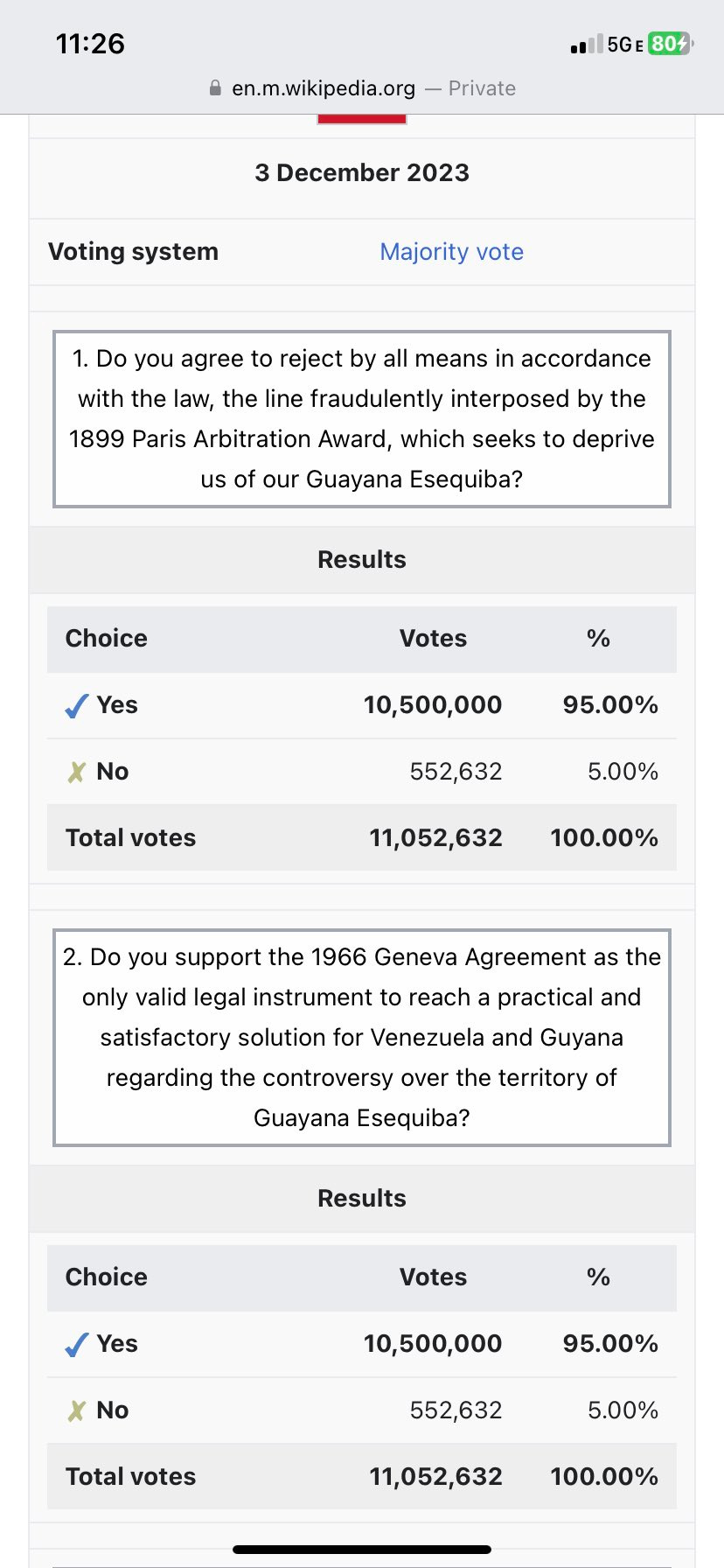
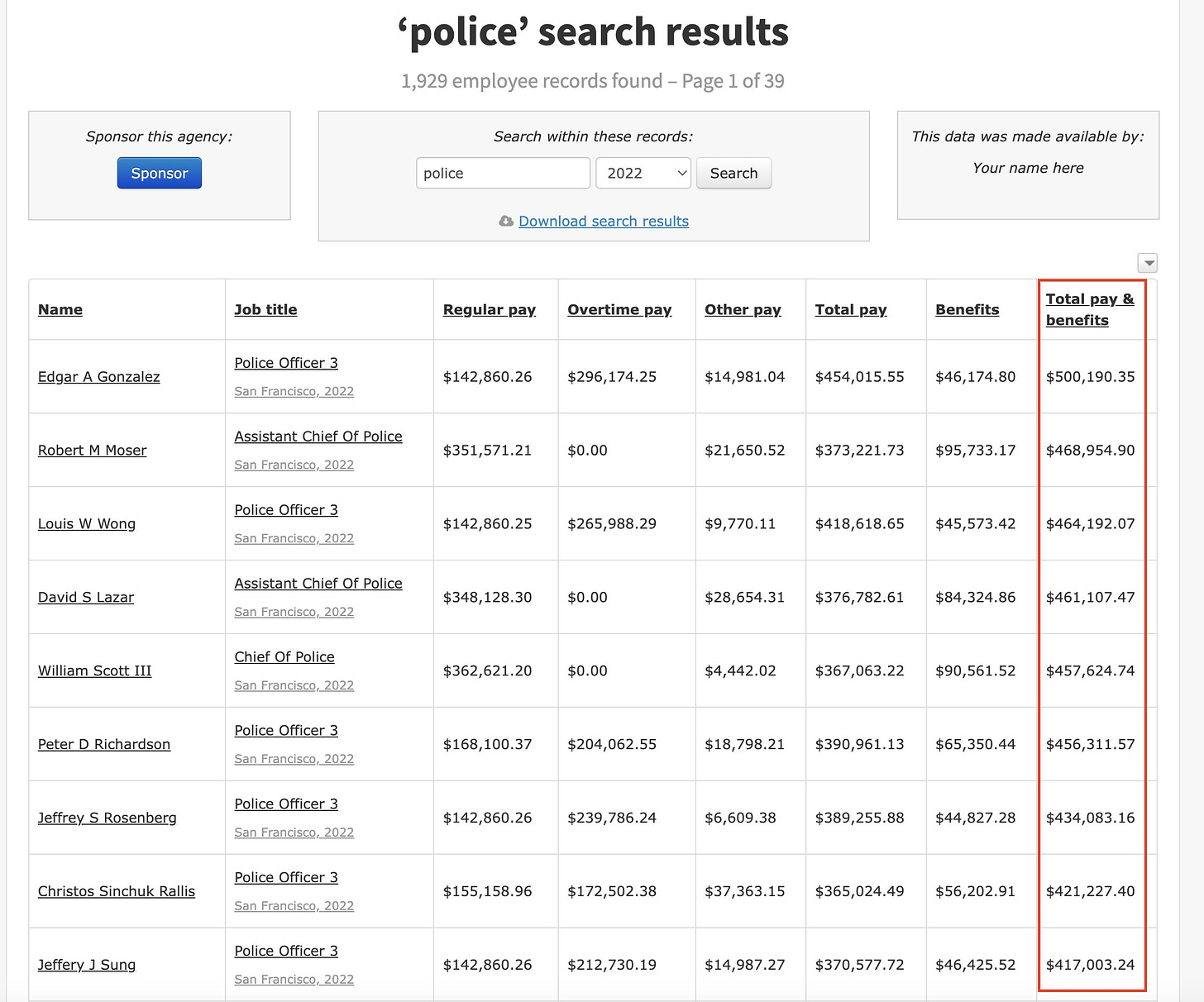
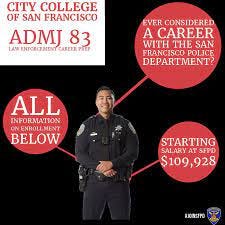
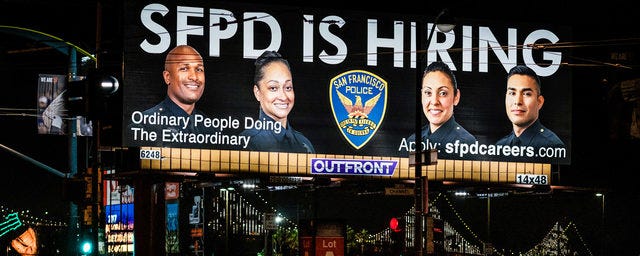
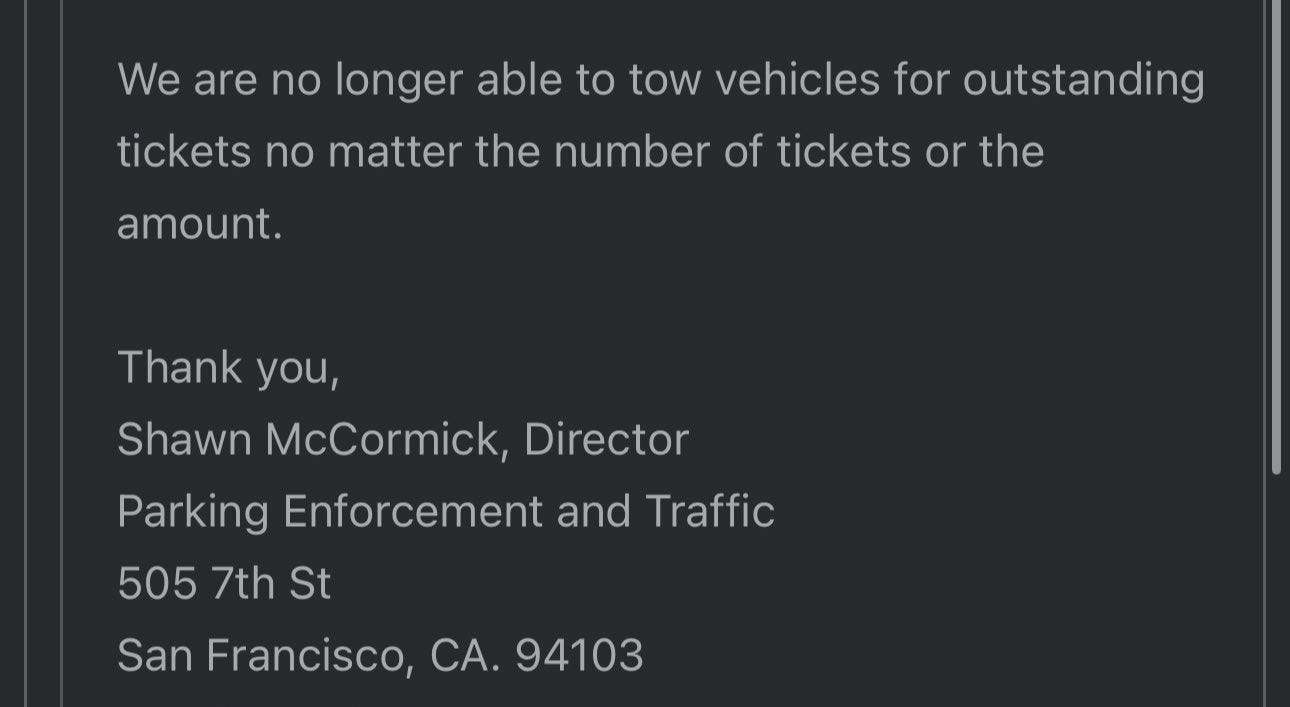
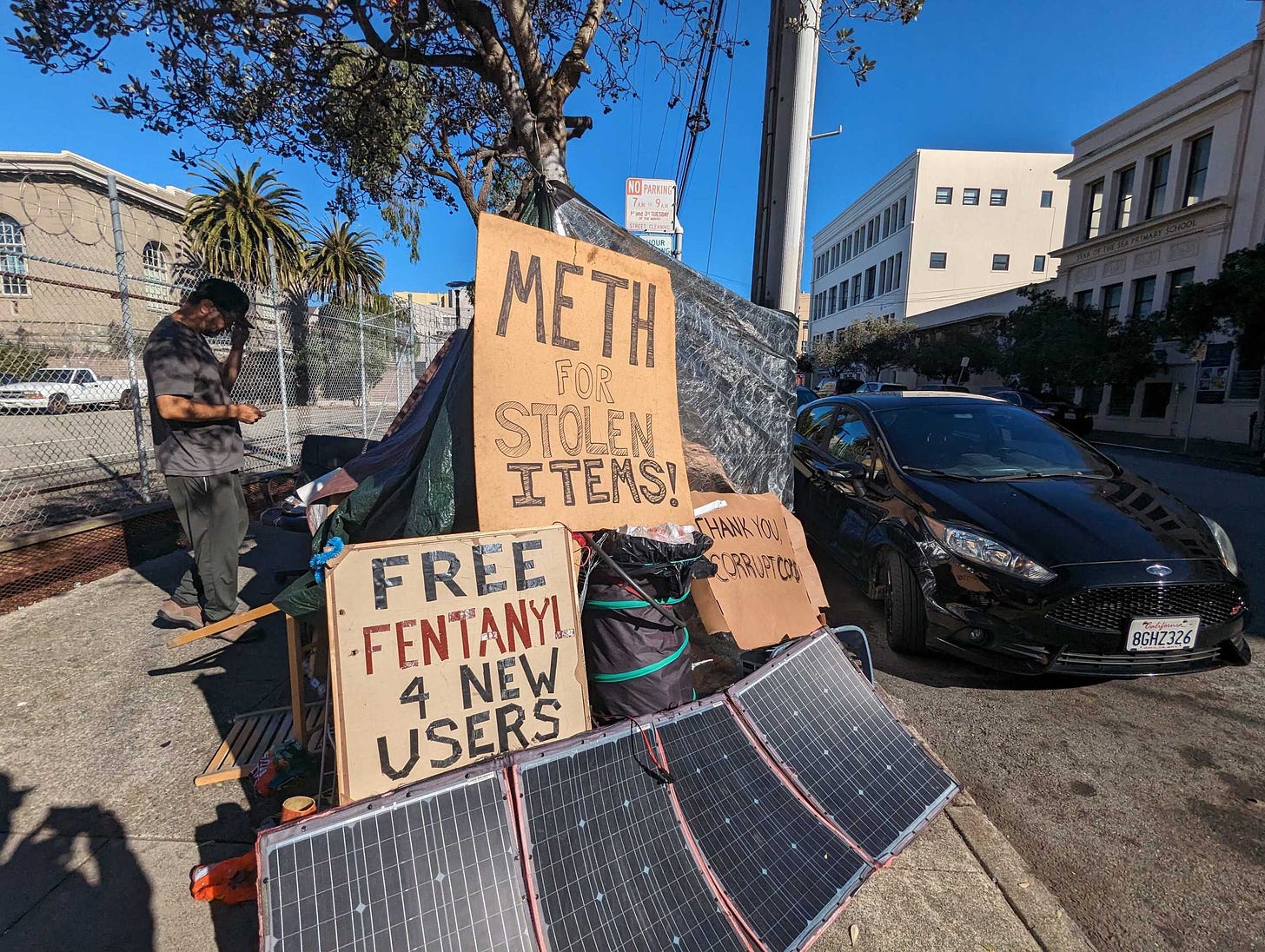
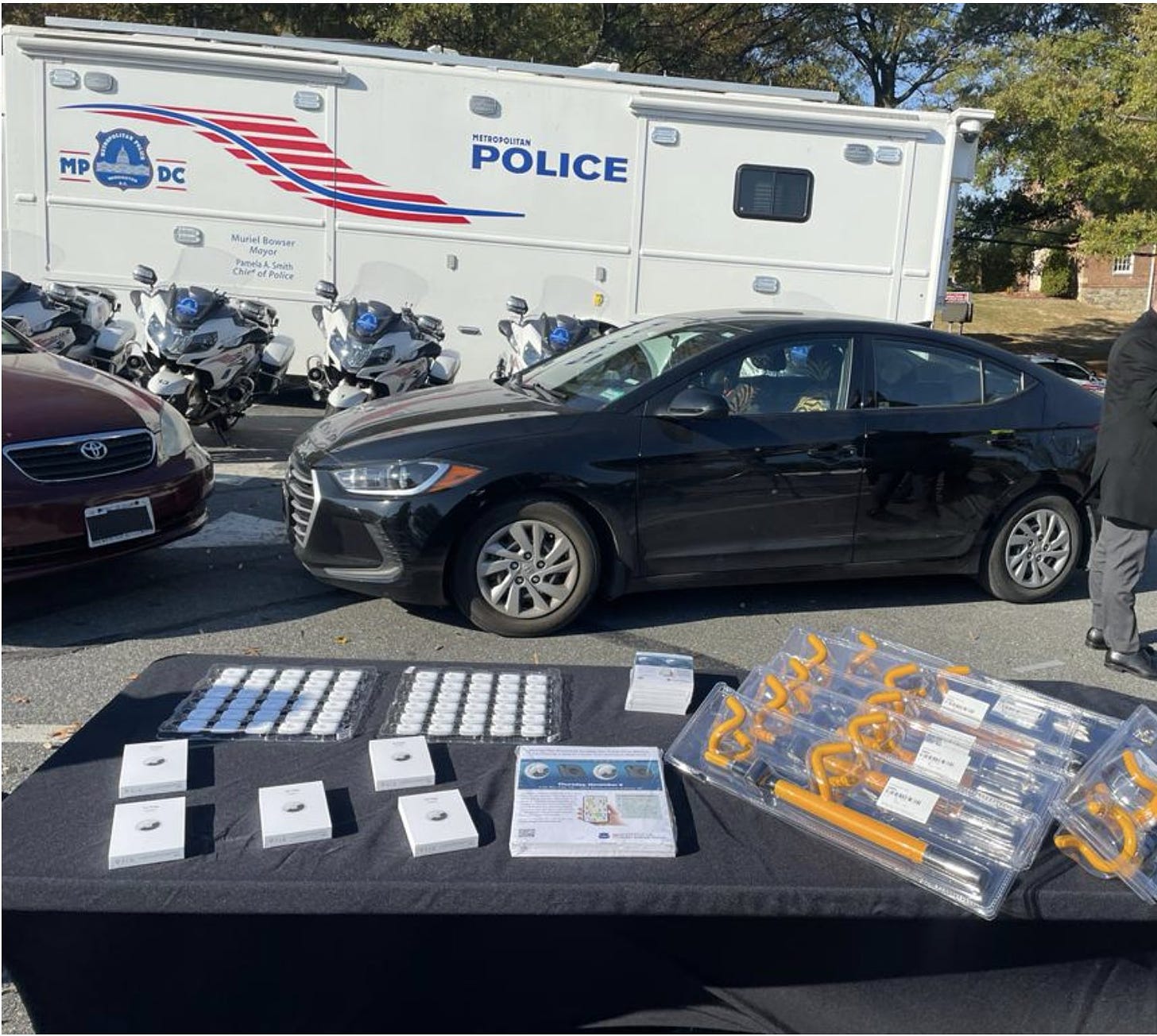
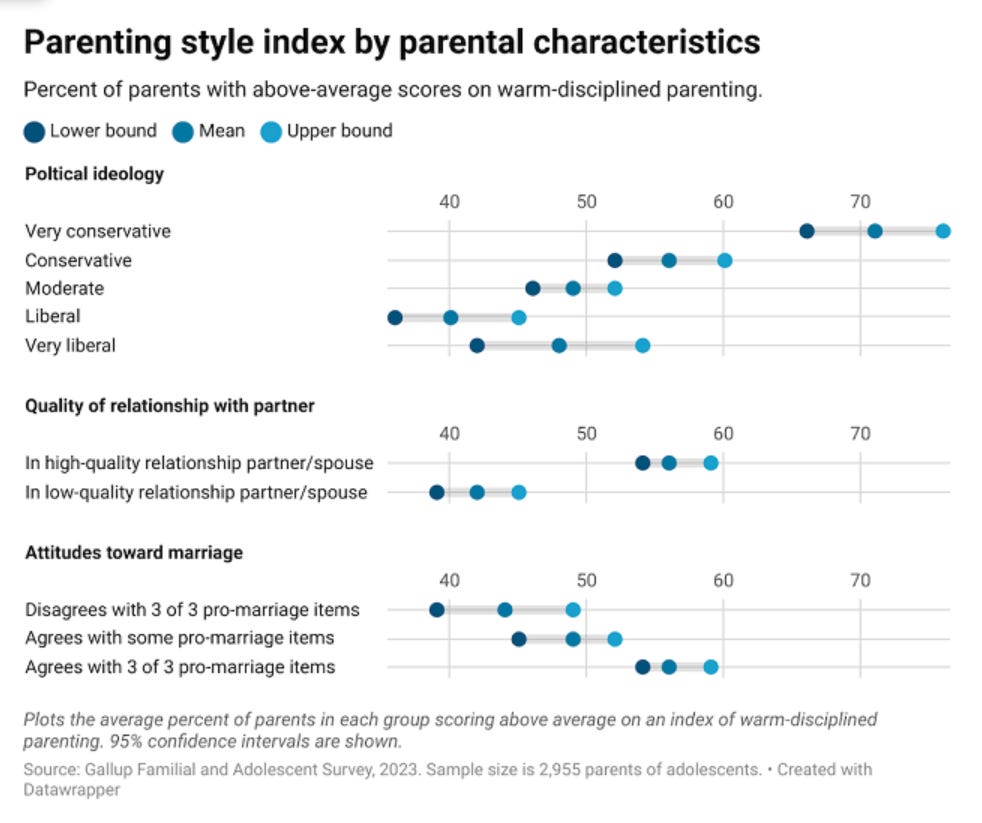
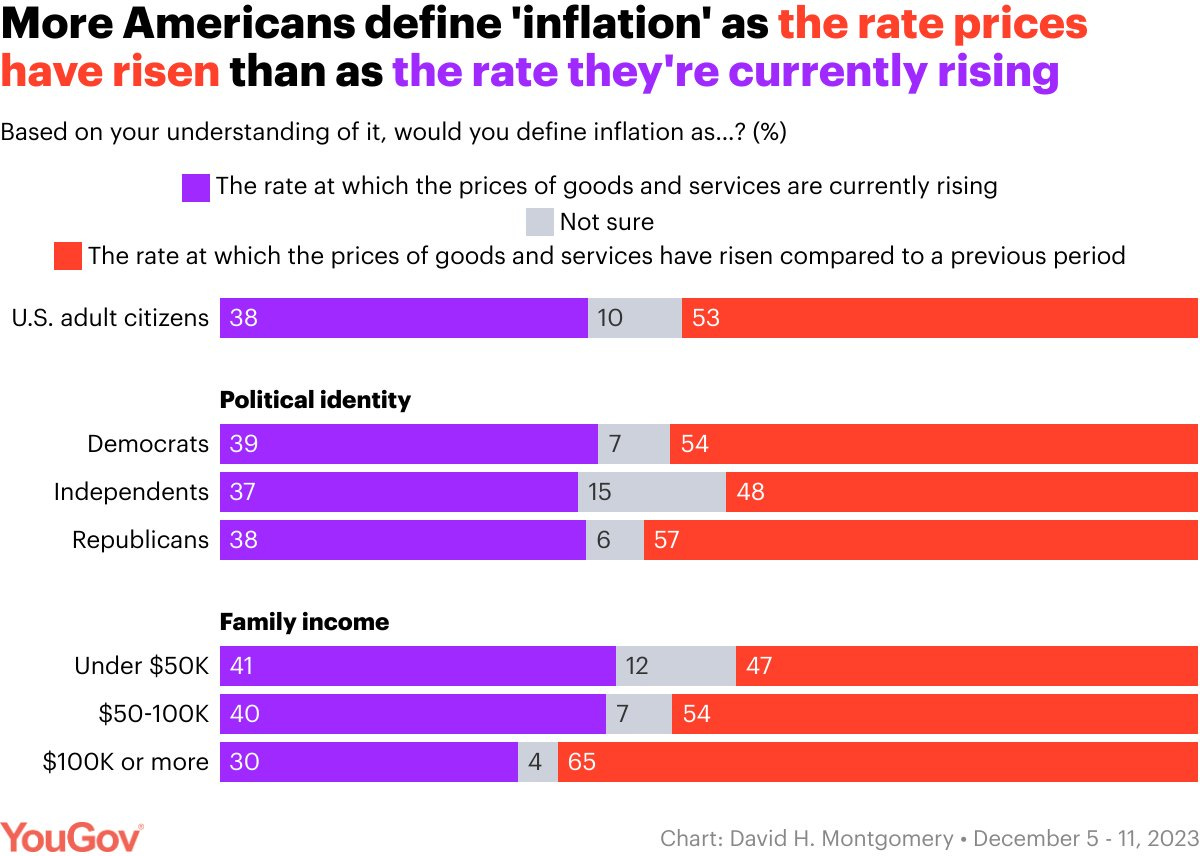
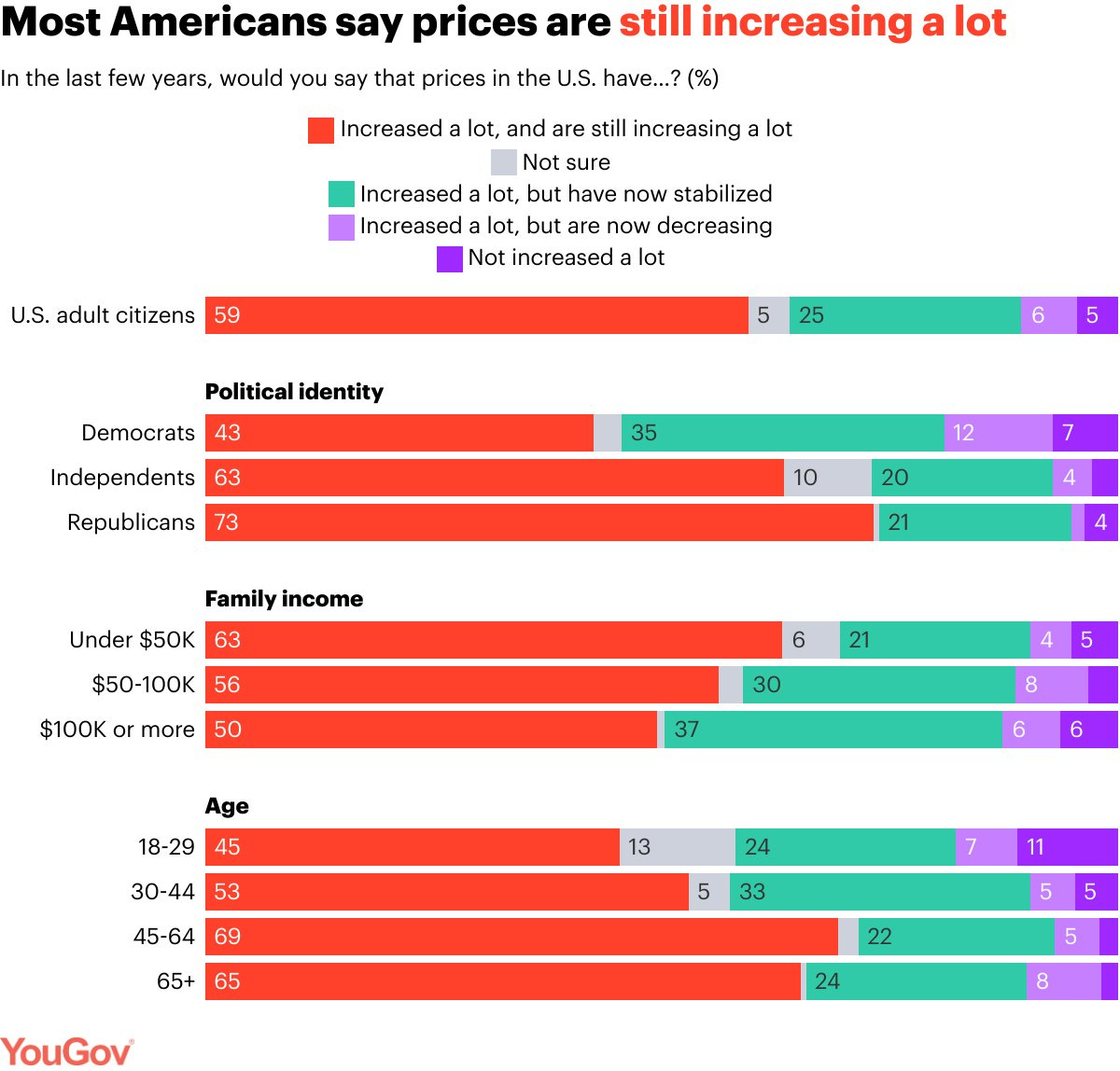
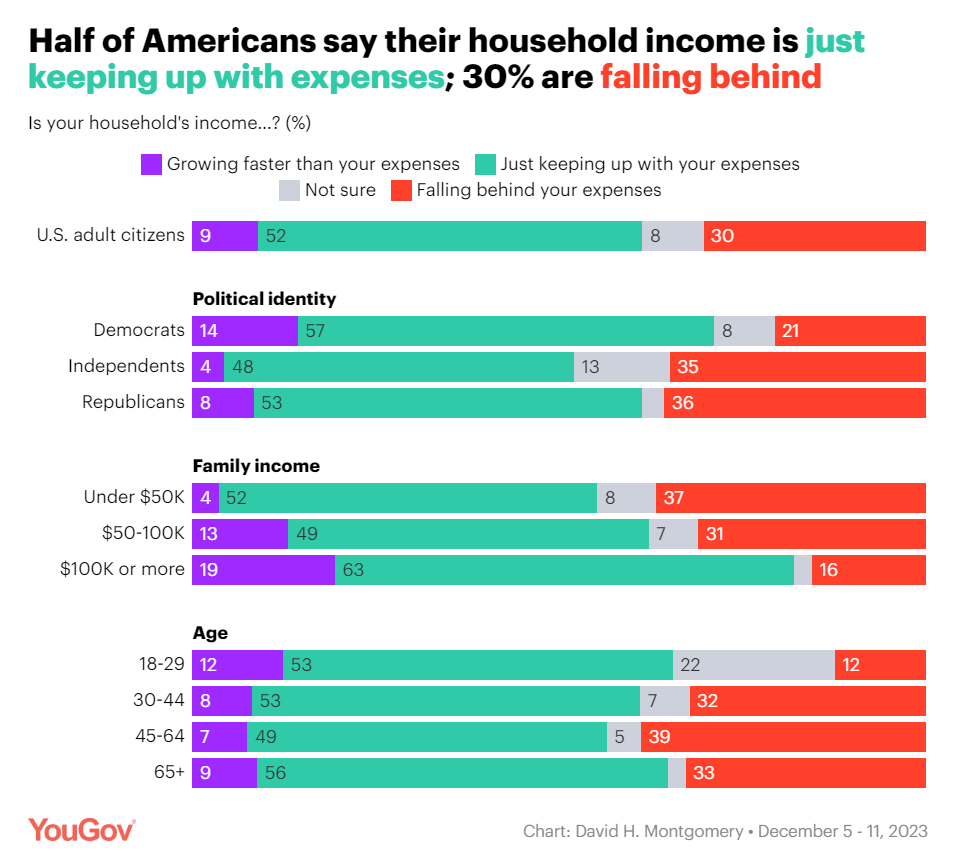
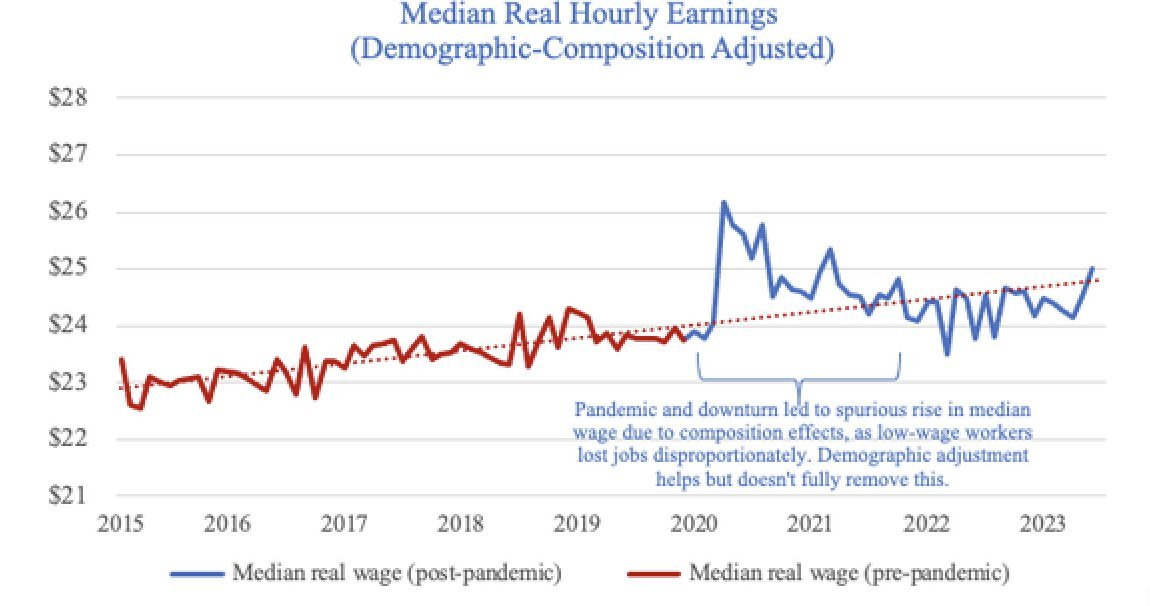
Re certainty and punishment, Megan McArdle's "The Up Side of Down" has a chapter about an innovative probation system in Hawaii called HOPE which emphasized certainty.
The judge explaining the system to new probationers:
“Now, let’s say you have an appointment with your probation officer on Monday and that morning your friend calls you and says, ‘I’ve got a beef with my landlord, I’ve got to move,’ and you drop everything and run over. Then at six o’clock that night”—the judge slaps his forehead—“you think, ‘Oh, no! I missed my appointment!’ What you do next will matter a lot. No matter what happens, you’re going to do some jail time. But if you turn yourself in immediately, you’ll do as little as possible. “If you come in the next day, they’re going to drug test you. If you test dirty, they’ll take you into custody. But if you’re clean, you’re working or in school, we’ll schedule a hearing later in the week, and try to have you do time on the weekend. Usually, it will only be a few days. “On the other hand, some people on that Monday night are going to say, ‘Oh, I don’t want to go back to jail, so I’m going to go out and party and wait for them to find me.’ If the police have to arrest you and bring you back, then I generally give you five times as much jail time as I would have if you’d turned yourself in.
McArdle, Megan. The Up Side of Down: Why Failing Well Is the Key to Success (pp. 218-219). Penguin Publishing Group. Kindle Edition.
I am extremely surprised that you're in favor of RCV. It's not just that it fails to give us the things we'd actually want (like viable third-party candidates not acting as spoilers) - it's that its outcomes are _weird_, in a way which makes voters distrustful of the process. The precise outcome shouldn't be so sensitive to small differences in rankings between losing candidates.
Approval, range, and STAR all seem like much, much better options. IRV seems like it's literally the worst non-FPTP option, and when you take into account the effect on voter trust in the system, it might actually be worse.
Arrow's theorem is overstated: it only applies to ordinal systems, not cardinal systems like approval or range.